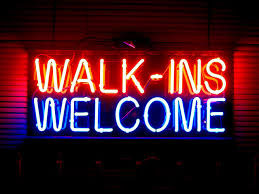Meeting time and location
 The group meets every Sunday throughout the year from 5:00 to 6:30 PM, and we mean every
Sunday: Derby weekend, Christmas Eve, High Holidays, 4th of July. The only exception is New Year's Eve, when the church building is closed. There is no charge for the group, although a voluntary collection is taken to help with childcare, workshops, and other expenses. Participants may join the group at any time -- walk-ins are welcome -- and childcare is provided at no charge.
The group meets every Sunday throughout the year from 5:00 to 6:30 PM, and we mean every
Sunday: Derby weekend, Christmas Eve, High Holidays, 4th of July. The only exception is New Year's Eve, when the church building is closed. There is no charge for the group, although a voluntary collection is taken to help with childcare, workshops, and other expenses. Participants may join the group at any time -- walk-ins are welcome -- and childcare is provided at no charge.
The group meets on the second floor of the education wing of Crescent Hill Baptist Church, which is located at
2800 Frankfort Avenue at the corner of Birchwood Avenue -- click for map.
In a nutshell
- Non-sectarian This is not a faith-based support group. We aren't against religion, we simply leave the faith- and religion-related aspects of divorce to a member's home church, if there is one. This way, we can serve a much more diverse group of people, including a wide range of faith traditions, non-believers, and those who might have become estranged from their church in the course of their divorce. And... we don't get into arguments about scripture.
-
Responsive We don't follow a curriculum or outside agenda. No workbook, no videos. Each small group (6-10 people with two facilitators) sets its own course each Sunday evening: What is going on in your life? What do you most need to talk about? There are often tears, laughter, and laughter through tears.
-
Set your own pace People stay with us, on average, 8 months to a year. Some come once and never return. They will be completely welcome if they do.
-
No waiting Since we do not follow a curriculum, there is no waiting for the next class to begin when your life seems to be falling apart. Walk-ins are always welcome; in fact, everybody there is a walk-in. We have three 16-week sessions per year, but these are mainly for administrative reasons, to re-shuffle small-group membership and give the facilitators a chance to take a break for a couple of months.
-
Leadership The facilitators are all alumni of the group. We don't ask people to facilitate until we've spent a year or two with them: Are they in a healthy place? Can they be quiet and listen? Do we trust them with the deepest parts of our lives?
-
How does it work? In each small group of around 10 members with an average age of, say, 50, collectively there is half a millenium's worth of life experience to bring to bear on whatever issues come up: parenting, custody, finances, moving, inlaws/grandparents, new relationships. And, long after friends and even family tire of hearing about what you are going through, the group does not.
-
Why does it work? Opinions vary, but consider: members each get their 15 or 20 minutes to bring up what is important in their life that week, and for the rest of the hour and a half listen to what others are going through. Through them, you come to understand yourself better. You even come to understand your ex better. You grow. You move on.
Purpose
The purpose of the group is for people experiencing separation or divorce to provide each other
with emotional support, practical advice, and a sense of community. While our conversations
are often healing and therapeutic, these are peer-led self-help meetings and should not be confused with therapy with a trained counselor.
No subject is off limits in the support group, but some issues may come up that a facilitator might suggest be addressed with a
therapist or in a therapy setting. We hope that you will find in the support group a place
to safely express your feelings, to experience personal growth, and to experiment with new ways of relating to others.
 We welcome people regardless of religious affiliation, race, nationality, age, gender, gender identity, sexual orientation, or role in the divorce.
Although generously sponsored by a Baptist congregation, Divorce Recovery Louisville welcomes all people
without regard to their religious faith, if any. We address matters of faith when a member
raises the topic as part their own personal situation, but do not follow a faith-based approach to
divorce recovery or espouse any religious creed. Our facilitators are as likely to be Catholic, Jewish,
or agnostic as Baptist - not that you'd ever know.
We welcome people regardless of religious affiliation, race, nationality, age, gender, gender identity, sexual orientation, or role in the divorce.
Although generously sponsored by a Baptist congregation, Divorce Recovery Louisville welcomes all people
without regard to their religious faith, if any. We address matters of faith when a member
raises the topic as part their own personal situation, but do not follow a faith-based approach to
divorce recovery or espouse any religious creed. Our facilitators are as likely to be Catholic, Jewish,
or agnostic as Baptist - not that you'd ever know.
Group sessions
The whole group meets briefly for announcements, then divides into assigned groups of 6-10 participants
and two facilitators, one male and one female whenever possible, who are themselves alumni of the support group. At the start of each small group session, you will be asked to share your
name, the status of your divorce or separation, what kind of emotional week you have had, and whether or
not you need to claim time to work on your issues with the group. In order that everyone has adequate time,
we try to accomplish individual work within a 15-20 minute time period.
Members of each group commit to attend for a 16-week period, and are expected to make attendance a
priority -- participating in group isn't just something to do when nothing else is available. Members who know they will be absent agree to contact another member of the group or a facilitator
who will be present. The reason for this commitment is that this is a support group; other
people may be concerned for you, and other members might have come to share a problem with you and
want your support.
Confidentiality
Any subject or feeling may be expressed in group, but should not be mentioned outside of the group
to anyone, including the individual who expressed it, if there is any possibility of breaching the
confidentiality we share in group. (Group leaders will, however, act
responsibly if information provided indicates that follow-up is necessary.)
Dating within the group
 The group is not a dating service -- think of it as an undating service, where you learn to live comfortably with yourself before you even think about living with someone else again. The group's strong recommendation is that you avoid dating within your small group, because experience has shown that it will interfere with your recovery from divorce -- you will be hesitant to discuss previous relationships in the presence of someone you are currently dating. If you do date within your small group, you must be willing to have that relationship discussed within the group.
The group is not a dating service -- think of it as an undating service, where you learn to live comfortably with yourself before you even think about living with someone else again. The group's strong recommendation is that you avoid dating within your small group, because experience has shown that it will interfere with your recovery from divorce -- you will be hesitant to discuss previous relationships in the presence of someone you are currently dating. If you do date within your small group, you must be willing to have that relationship discussed within the group.
Using the group to best advantage
Work often... even if you feel you have nothing to bring up. Claim time at least once a month to
talk about what is going on in your life, and how you feel about it. If you have nothing on which
to work, the group will help by asking questions. Remember that you do not need a crisis to
work; sometimes the most important work can be done on the routine things that are occurring in
your life. When you are in divorce, almost every issue becomes a divorce issue -- stress at work,
relating to your children, financial changes -- and the input of the others in your group can help
you keep them in perspective and find solutions, especially when you can no longer depend on a spouse for support.

 The group meets every Sunday throughout the year from 5:00 to 6:30 PM, and we mean every
Sunday: Derby weekend, Christmas Eve, High Holidays, 4th of July. The only exception is New Year's Eve, when the church building is closed. There is no charge for the group, although a voluntary collection is taken to help with childcare, workshops, and other expenses. Participants may join the group at any time -- walk-ins are welcome -- and childcare is provided at no charge.
The group meets every Sunday throughout the year from 5:00 to 6:30 PM, and we mean every
Sunday: Derby weekend, Christmas Eve, High Holidays, 4th of July. The only exception is New Year's Eve, when the church building is closed. There is no charge for the group, although a voluntary collection is taken to help with childcare, workshops, and other expenses. Participants may join the group at any time -- walk-ins are welcome -- and childcare is provided at no charge.
 We welcome people regardless of religious affiliation, race, nationality, age, gender, gender identity, sexual orientation, or role in the divorce.
Although generously sponsored by a Baptist congregation, Divorce Recovery Louisville welcomes all people
without regard to their religious faith, if any. We address matters of faith when a member
raises the topic as part their own personal situation, but do not follow a faith-based approach to
divorce recovery or espouse any religious creed. Our facilitators are as likely to be Catholic, Jewish,
or agnostic as Baptist - not that you'd ever know.
We welcome people regardless of religious affiliation, race, nationality, age, gender, gender identity, sexual orientation, or role in the divorce.
Although generously sponsored by a Baptist congregation, Divorce Recovery Louisville welcomes all people
without regard to their religious faith, if any. We address matters of faith when a member
raises the topic as part their own personal situation, but do not follow a faith-based approach to
divorce recovery or espouse any religious creed. Our facilitators are as likely to be Catholic, Jewish,
or agnostic as Baptist - not that you'd ever know.
 The group is not a dating service -- think of it as an undating service, where you learn to live comfortably with yourself before you even think about living with someone else again. The group's strong recommendation is that you avoid dating within your small group, because experience has shown that it will interfere with your recovery from divorce -- you will be hesitant to discuss previous relationships in the presence of someone you are currently dating. If you do date within your small group, you must be willing to have that relationship discussed within the group.
The group is not a dating service -- think of it as an undating service, where you learn to live comfortably with yourself before you even think about living with someone else again. The group's strong recommendation is that you avoid dating within your small group, because experience has shown that it will interfere with your recovery from divorce -- you will be hesitant to discuss previous relationships in the presence of someone you are currently dating. If you do date within your small group, you must be willing to have that relationship discussed within the group.